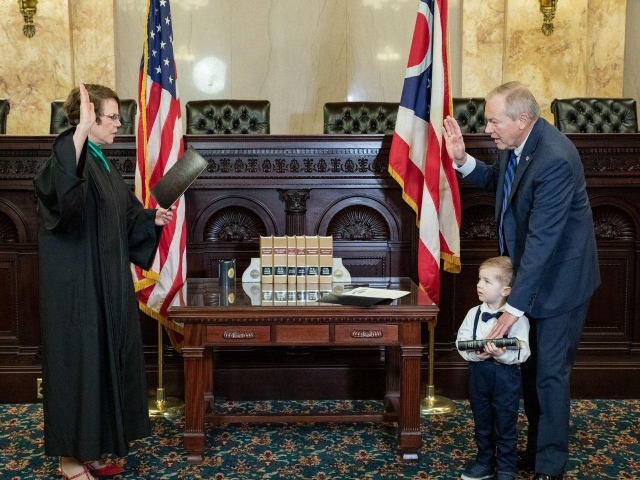President's Podcast Introduces Senator Bill Reineke

The Senate conducted a busy week of committees, complete with a full voting session Wednesday.
In remarkable fashion, the bills passed unanimously.
The Senate passed Senate Resolution 121, sponsored by Senator Michael Rulli, urging the Biden Administration to invest in natural gas infrastructure and generation. As more coal plants are decommissioned and razed, the power supply available is reduced.
More generation plants powered by natural gas are coming on line, but there is an effort by the progressive left to limit natural gas production, even though it burns far cleaner than coal. Alternative energy sources such as wind and solar just do not have the capacity to power the grid.
Natural gas is also far more affordable and Ohio has vast reserves of it in the Marcellus and Utica Shale deposits. Energy security is a national security issue.
Meantime, it’s no secret that China keeps building coal burning power plants, unconcerned about air quality and the smog that clouded the Olympic Games a few years ago.
Communist China is an enemy of the free world. Senator Terry Johnson has worked to pass legislation preventing our foreign adversaries from buying Ohio farmland and from buying property next to a military installation.
This week he sponsored Senate Resolution 241, condemning the Chinese Government for its actions undermining the safety of the United States. China has been directly linked to the trafficking of fentanyl crossing our unsecured border. This next phase of the opioid crisis has turned deadlier because of this powerful painkiller, and local law enforcement is witnessing the danger and fallout first hand.
And, lest we forget, at least one United States Government Agency has determined that the Covid-19 pandemic was the result of a leak from a Wuhan, China laboratory. Read the resolution.
The Senate also sent House Bill 161 to the Governor. It updates Ohio’s laws regarding Sexual Assault involving married couples. The law will no longer recognize a difference in sex offense cases where the married couple was living together or living apart.
Unfortunately, we continue to read stories about sex offense cases in today’s professional world. The Senate passed Senate Bill 109, sponsored by Senator Bob Hackett that updates Ohio’s laws regarding people who have a license issued by the State Medical Board. The bill helps ensure that the State Medical Board is notified of a charge or conviction involving a sex offense, so the offender's license can be suspended or revoked. If the board isn’t aware of a case being prosecuted, the person charged or convicted could continue to practice in Ohio. The bill now goes to the House of Representatives for hearings.
The Senate also amended House Bill 250 to help public schools craft a smart phone policy for their districts. The bill requires the Department of Education and Workforce to adopt a model policy that districts can use or use for guidance in writing one. Districts that already have a policy in place may continue to use them. We know how distracting smart phone use is, especially for teenagers, and this is a big step towards making sure our students are focused on classsroom work.
The bill also establishes new pathways for graduating students to obtain the military seal on their diploma, showing that they will serve the country in the military upon graduation.
This week we welcome Senator Bill Reineke, R-Tiffin, to the President’s Podcast. Senator Reineke sponsored Senate Bill 1, which passed as part of the General Assembly’s budget bill in 2023. It included historic reforms to the Department of Education, transforming it into the Department of Education and Workforce, aligning it under the Governor’s Office for direct oversight and accountability.
Senate Reineke also chaired the Select Committee on Rail Safety following the dangerous derailment in East Palestine, that paralyzed the community in fear for months.
Join us for the President's Podcast, as he talks about the rail safety updates that were passed, and why he believes some changes need to be made for operators of smaller rail lines and spurs.
